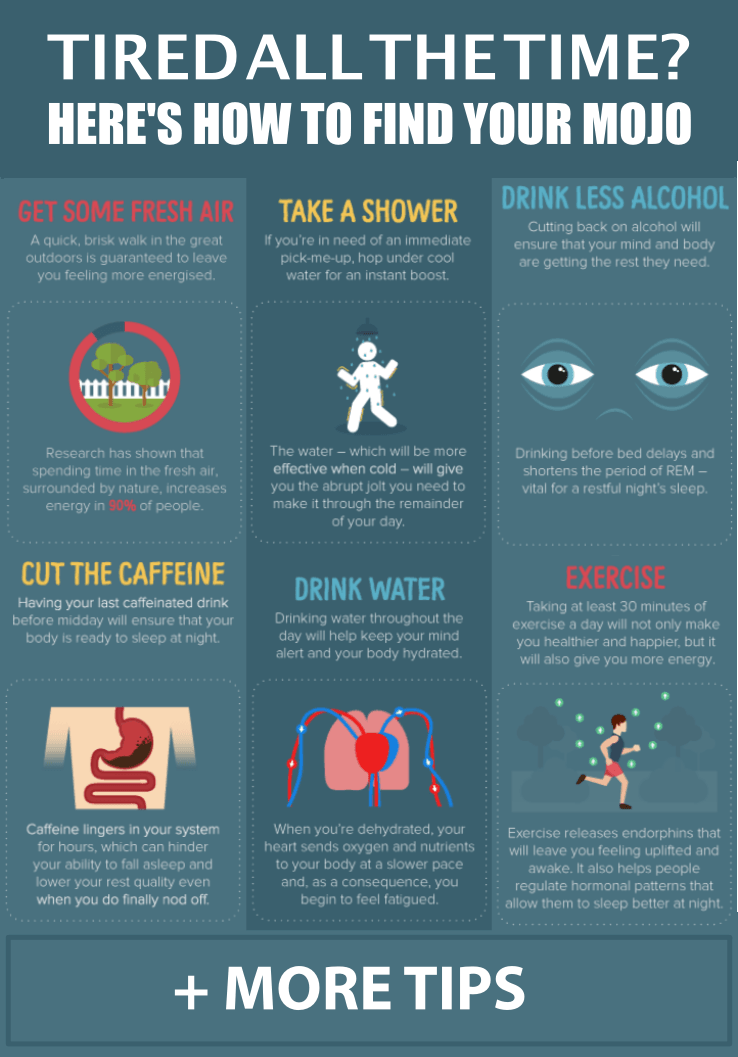As you get less sleep, it’s tempting to reach for an energy or caffeinated drink to stay awake during the day. Believe it or not, consuming these types of drinks to combat sleepiness, can lead to a vicious cycle.
Yes, caffeine will help you stay awake, but it can easily take up to eight hours to wear off. This means it can also reduce your sleep time and decrease the quality of your sleep.
So, how do can you stay awake naturally?
In one well-known study, Robert Thayer, PhD, a professor at California State University, Long Beach, studied whether people were more energized by eating a candy bar or taking a brisk 10-minute walk.
Though the candy bar provided a quick energy boost, participants were actually more tired and had less energy an hour later. The 10-minute walk increased energy for two hours. That’s because walking pumps oxygen through your veins, brain, and muscles.
If you work at a desk, get up frequently for short walks. At meal breaks, walk to a restaurant or, if you bring your lunch, head for a nice spot to eat it. Whether you take a walk outside or just in the building where you work, it will make you feel more alert and refreshed.
There are two things to remember about naps: Don’t take more than one and don’t take it too close to your bedtime.
“Nap between five and 25 minutes,” says Barry Krakow, MD, author of Sound Sleep, Sound Mind: Seven Keys to Sleeping Through the Night. It’s best to nap about six or seven hours before you would normally go to bed. If you must take a late nap close to bedtime, make it a short one.
Napping on the job can be touchy. If you need to nap at work, do it during your break and use a vibrating alarm clock, if necessary, to make sure it doesn’t spill over into your work time.
Sleeping at your desk is usually not a good idea, but many companies now provide nap rooms for employees.
“If you can’t nap, even resting quietly with your eyes closed for 10 minutes or so will help,” says Allison T. Siebern, PhD, a fellow at the Stanford University Sleep Medicine Center in Redwood City, Calif.
Continuous fixation on a computer screen can cause eyestrain and worsen sleepiness and fatigue.
Look away from the screen for a few minutes periodically to relax your eyes.
Sugary snacks give you a quick energy boost followed by the sugar “lows,” when low blood sugar produces mental fogginess and lethargy.
Snacks such as these will provide better overall energy in the long run:
If you’re fading fast, engaging in conversation can get your mind moving again.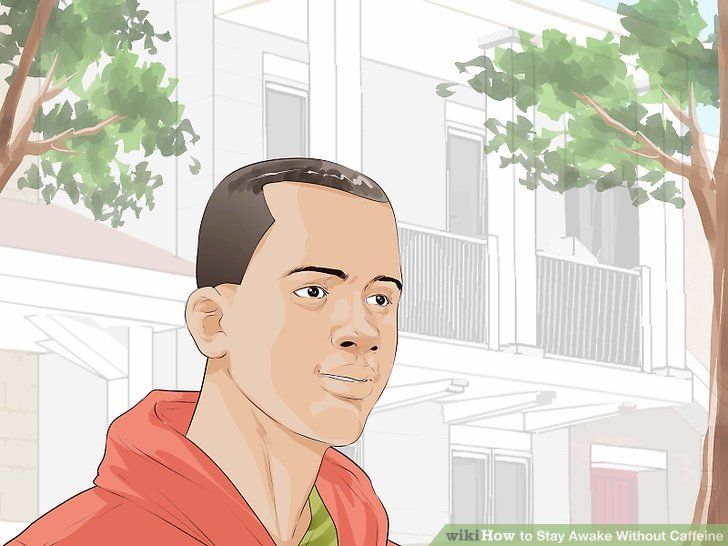 “Talk to a colleague about a business idea, politics, or religion,” says Krakow, medical director of Maimonides Sleep Arts and Sciences, Ltd. in Albuquerque, N.M. “It’s a very strong behavioral stimulator — especially when it’s a conversation about politics.”
“Talk to a colleague about a business idea, politics, or religion,” says Krakow, medical director of Maimonides Sleep Arts and Sciences, Ltd. in Albuquerque, N.M. “It’s a very strong behavioral stimulator — especially when it’s a conversation about politics.”
Environments with dim lighting aggravate fatigue. Studies have shown that exposure to bright light can reduce sleepiness and increase alertness. Try increasing the intensity of your light source at work.
Deep breathing raises blood oxygen levels in the body. This slows your heart rate, lowers blood pressure, and improves circulation, ultimately aiding mental performance and energy.
The idea of deep-breathing exercises is to inhale to the abdomen, not the chest. You can do them at your desk. Sitting up straight, try this exercise up to 10 times:
 Your chest should not move.
Your chest should not move. Another technique, called stimulating breath, is used in yoga for a quick energy boost and increased alertness:
“Driving while sleepy is as dangerous as driving under the influence of alcohol,” says Siebern. Common tricks such as opening the windows and turning on loud music won’t keep you awake for very long behind the wheel. “Have someone else drive or pull off the road and take a nap until you’re no longer sleepy,” Siebern says.
If you’re on an extended trip, change drivers often. Stop at least every two hours to take a walk and get some fresh air.
In 2004 Finnish researchers who studied people working 12-hour night shifts found that monotonous work is as harmful as sleep loss for alertness.
At work or home, try to reserve more stimulating tasks for your sleepy times. Or switch to more engaging work responsibilities when you feel yourself nodding off.
Dehydration can cause fatigue. Make sure you drink plenty of fluids and eat foods high in water such as fruits and vegetables.
Our circadian rhythms, which regulate our sleep-wake cycle, are influenced by daylight. Try to spend at least 30 minutes a day outside in natural sunlight. (Sleep experts recommend an hour of morning sunlight a day if you have insomnia. ) Even a step outside for a breath of fresh air will revive your senses.
) Even a step outside for a breath of fresh air will revive your senses.
In a 2006 analysis of 70 studies involving more than 6,800 people, University of Georgia researchers found that exercise was more effective in increasing energy and reducing daytime fatigue than some medications used to treat sleep problems.
Regular exercise also improves quality of sleep. Try to exercise 30 minutes a day.
If you decide to exercise hard some days, your energy level may drop for a bit and then surge for a few hours.
Eating a meal that contains both protein and carbohydrates within two hours after a heavy workout will lessen the initial energy loss. Be sure to finish your workout a few hours before bedtime so you are not energized when you try to sleep.
The team at Salem Health is here for you. Call our Sleep Center providers today!
It's normal to wake up groggy or desire a mid-afternoon snooze. What's not so normal is consistently feeling tired throughout the day.
What's not so normal is consistently feeling tired throughout the day.
Low energy levels put a damper on your mood, creativity, and willpower, making it more difficult to check off your to-do list. If you find yourself regularly yawning, take stock of what's causing your daytime tiredness and learn how to feel more awake.
Below, we’ll dive into why you might be feeling so tired and what you can do to boost your energy levels.
Why do I feel tired during the day?
How can I make myself feel more awake?
Before we share tips on how to feel more awake, let’s find out what's stopping you from being your best.
Feeling more awake during the day boils down to two things: low sleep debt and circadian alignment. Even if just one of these things is thrown off, you’ll likely feel low energy levels during the day.
Here’s what they are and how they work.
Caption: The RISE app tells you how much sleep debt you have.
Sleep debt refers to the amount of sleep you’ve owed your body over the past 14 days. But, how does sleep debt exactly relate to staying awake when it's bright outside?
Two words: Sleep pressure. It’s our biological response that encourages us to go to bed and get the rest we need. Sleep pressure builds up during the day (courtesy of the drowsiness-inducing chemical called adenosine) and subsides at night in a process called the homeostatic sleep drive. Put it this way — the longer you're awake, the more adenosine accumulates in your brain to amplify sleep pressure.
The only way to relieve sleep pressure is to get enough sleep.
Unfortunately, when you don't meet your sleep need — the genetically determined amount of sleep you need each night — you aren’t easing sleep pressure. Instead, you’re accruing sleep debt. This sleep deprivation directly impacts how you feel during the day — think increased morning sleep inertia (i.e., you wake up feeling groggier) and lower energy levels.
So, if you’re constantly feeling sluggish and tired throughout the day, high sleep debt may be to blame.
You can work out how much sleep debt you’re carrying with the RISE app. RISE first works out your unique sleep need, so you have a number to aim for each night. It then calculates the amount of sleep debt you have. We recommend keeping this below five hours to feel and perform your best, and improve your energy levels each day.
That said, your sleep debt isn't the only factor that can affect your energy levels.
Aside from sleep debt, your circadian rhythm also plays a huge part in how awake you feel. Fondly referred to as your body's internal clock, your circadian rhythm tells you when it's time to turn in or to get up.
If you regularly sleep at different times, you’ll be throwing your circadian rhythm out of whack, causing low energy levels during the day and difficulty sleeping come nighttime.
Your circadian rhythm is also the reason why your energy levels fluctuate throughout the day.
PSA: It's absolutely normal for your energy levels to peak and dip as the day wears on. In fact, there's one dip everyone goes through, no matter if you've had a good night’s sleep or eaten a healthy lunch.
When afternoon arrives, you're probably yawning at your desk and trying to keep your eyes open. In other words, it's the dreaded afternoon slump.
But, here’s the thing: The afternoon dip is natural and expected. Sure, super early birds may experience a noon-ish dip, and extreme night owls usually feel the effects in the late afternoon. But, no matter your biological sleep-wake inclinations (also known as your chronotype), everyone goes through the afternoon slump — and no, it isn’t due to your lunch.
After all, you’ve been riding high on your morning peak and expending immense brainpower. What goes up must eventually come down. (That said, a high-carb lunch can worsen the afternoon slump, as it spikes your blood sugar levels and triggers an energy crash. )
)
Science explains the afternoon dip occurs due to a temporary fall in circadian alerting signals. Light prompts your circadian master clock to release circadian alerting signals in steadily increasing levels from the moment you rise. These signals promote wakefulness to counter sleep pressure.
Corresponding to the rise and fall of your circadian rhythm, the level of circadian alerting signals naturally dips at certain times of the day. For many, the first of two notable dips coincides with the hours just after lunch, resulting in your mid-afternoon slump. During this time, your lowered circadian alerting signals combine with rising sleep pressure, which explains the intense sleepiness and yawns.
So, if you’re feeling sleepy in the afternoon, it may just be your natural biology at play.
While your sleep debt and circadian rhythm work independently, they both affect how awake you feel during the day.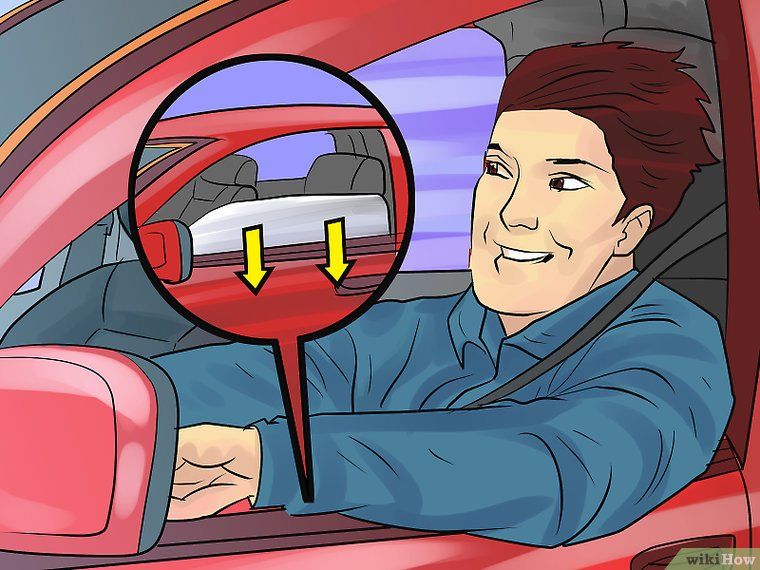
As your circadian rhythm dictates your sleep and wake times, it invariably determines your sleep length. Sleep times not aligned to your natural rhythm — characterized by late bedtimes and early wake times — promote circadian misalignment and inevitably insufficient sleep. In other words, you're carrying high sleep debt, which leads to more difficulty staying awake during the daytime.
At the same time, high sleep debt does a number on your energy levels, too. While it's true that your circadian rhythm directly influences your energy fluctuations, sleep deprivation shrinks your peaks and amplifies your dips, leading to an overall drop in productivity and performance.
In essence, lowering your sleep debt and practicing circadian consistency helps you feel more awake and energetic during the day.
RISE predicts your circadian rhythm each day based on things like your phone use behavior and inferred light exposure. This way, you can see when your peaks and dips in energy are coming, and plan for them by scheduling harder tasks when you naturally have more energy, and saving easier tasks for when you’re naturally more tired.
If you want to be at your best, follow these science-based tips and learn how to feel more awake.
As we explained above, sleep debt is one of the biggest things determining your energy levels each day. Most of us know how important sleep is, but not many of us know how much of it we need exactly.
Everyone’s sleep need is different, too. The average sleep need is 8 hours 10 minutes, plus or minus 44 minutes or so, but 13.5% may need 9 hours of sleep or more a night.
Once you’ve found out your sleep need with RISE and seen how much sleep debt you’re carrying, you can work to pay down this debt back if it’s more than five hours.
You can do this by:
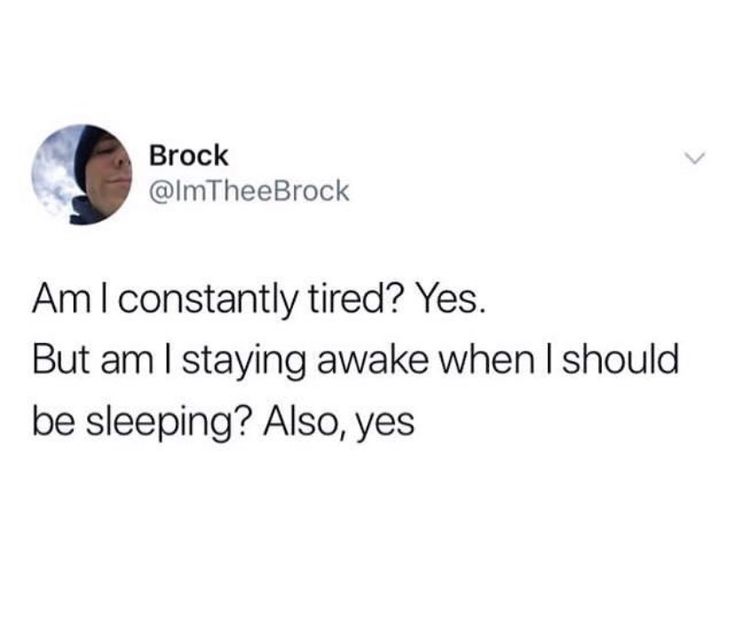
Even if you’re meeting your sleep need each night, you’ll still feel low on energy if you’re living out of sync with your circadian rhythm. You can use the RISE app to see a prediction of your circadian rhythm each day. This’ll help you determine the best times to go to sleep, wake up, and when you’ll most likely be more and less productive.
If you’ve got control over your schedule, you can sync up when you do these things with your natural biology. By that we mean plan demanding tasks for your energy peaks and easier tasks for your energy dips, making the most of each.
What are dip-friendly activities? Think tasks that don't need much brain power, whether it's watching a lecture or clearing admin work. For more inspiration, check out our Sleep Guide to find out how you can make the most of your energy dip.
Napping is an effective way to relieve sleep pressure, shrink sleep debt, and increase alertness.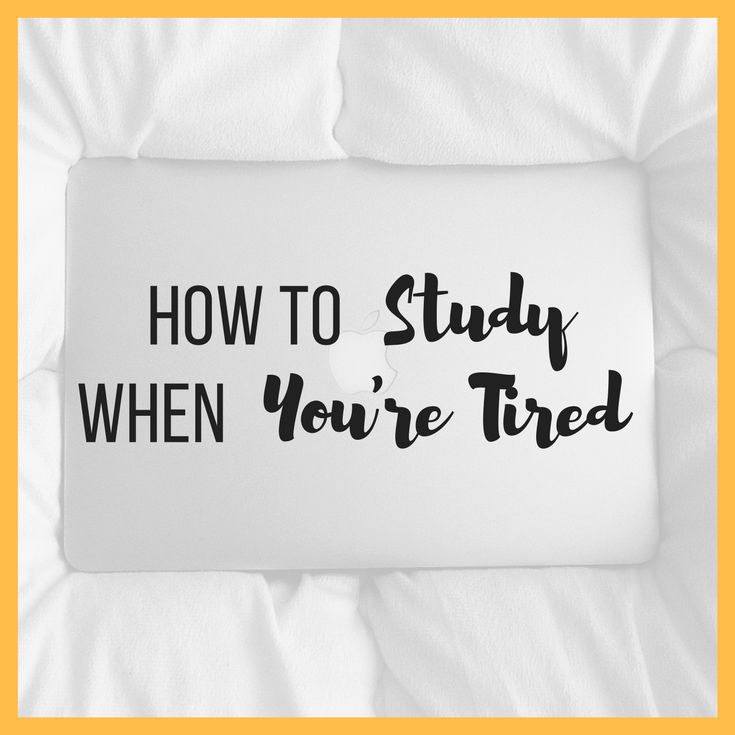 But there's a science to napping, taking into account your individual needs and circumstances.
But there's a science to napping, taking into account your individual needs and circumstances.

Timing is key when it comes to naps, however. Nap too close to bedtime and you’ll risk having trouble falling asleep at night, which could add to your sleep debt and make you feel tired the next day. To stop this from happening, keep naps to your afternoon dip in energy.
Follow the first rule of feeling more awake (i.e., keep sleep debt low) and get enough sleep every night. To start, check your sleep environment and prime it for a good night's sleep.
Here’s what you can do to enter dreamland more smoothly:

We understand it can be difficult to implement new changes and follow through with them. That’s why RISE has an in-app section called “Habits” to make the habit-forming process as effortless as possible. Simply go to Habits in the app and add the following activities to your Energy Schedule:
This way, RISE can send you prompts to make the above changes that will soon become second nature to you.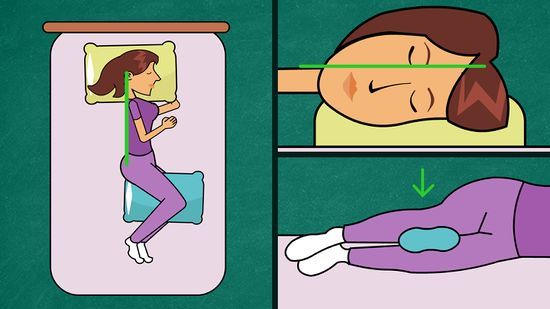
Remember how circadian misalignment disrupts your sleep patterns and hikes up sleep debt?
Nip that in the bud with a consistent sleep schedule tailored to your chronotype — are you a morning lark, a night owl, or somewhere in between? If possible, go to bed when your body tells you to and keep to a consistent wake time (that accounts for your sleep need), even on the weekends. Not only will you benefit from increased energy during the day, but you'll also find it easier to fall asleep each night. If your chronotype is at odds with when you need to wake up, consider resetting your circadian rhythm.
Keep a careful eye on social jetlag — when your body clock is at odds with your social clock. This often happens when we stay up an hour or two later on the weekends and hit the snooze button the next morning, only to snap back into early wake ups come Monday morning. As tempting as sleeping later on the weekends is, try to keep the times you go to bed and wake up the same.
Light can disrupt your sleep at night, but it can help make you feel more awake come morning. Aim to get at least 10 minutes of light exposure as soon as possible after waking, and make that 30 minutes if it’s a cloudy day or you’re getting light through a window. This can set you up for increased energy levels for the rest of the day.
Anxiety doesn't just increase sleep latency (you take longer to enter dreamland) and fragmentation (you’re less likely to sleep through the night). In fact, this negative emotion is also linked to sleep disorders like insomnia, which downgrades daytime alertness.
Fortunately, you can take steps to stop anxiety from overwhelming you with a wind-down routine. Mentally decelerate just before bed to slow down your brain and signal to it that it’s time for sleep. Find what works for you, whether it's writing tomorrow's to-do lists, spending quality time with family, or rewatching old movies.
Relaxation techniques also help lower stress and anxiety to lull you to sleep more easily. RISE offers scientifically proven relaxation programs — think Diaphragmatic Breathing and Relaxing Sounds — which you can play in bed at night.
All this will help you meet your sleep need each night, leading to increased energy the next day.
If you need to feel more awake instantly, head to the restroom and splash some cold water on your face — it raises your heart rate, blood flow, and metabolism to wake up your body. Plus, a cold shower can be an energizing part of your morning routine and it acts as a mood-lifter by relieving gloomy thoughts.
A cup of espresso is the quintessential pick-me-up, whether it's in the morning to neutralize sleep inertia and jumpstart your day or in the afternoon to combat your energy dip. Caffeine works by temporarily blocking adenosine receptors in your brain, meaning the sleepiness-inducing chemical can’t do its job.
That said, caffeine clings to your system for up to 12 hours, so be wary of how late you drink it to ensure it doesn't disrupt your sleep that night.
You may think decaf is a good alternative for an afternoon cup of joe. Unfortunately, it isn't entirely caffeine-free. If you're sensitive to caffeine, decaf beverages can still throw your sleep routine off-balance and incite higher sleep debt.
RISE helps you determine when you should cut off your caffeine consumption based on your unique biology. Go to Habits and add the "Limit Caffeine" reminder to your Energy Schedule.
Nothing's better than a rush of endorphins to battle tiredness if paying down sleep debt isn’t immediately possible. Physical activity also increases your heart rate and body temperature to boost your energy levels. Scientific literature recommends low- to moderate-intensity workouts to boost energy during the day and sleep better at night. Go for a morning walk to get some fresh air or cycle during your afternoon dip.
Just like with caffeine and naps, exercising too close to bedtime can make it harder to fall asleep, so aim to keep your intense workouts to earlier in the day.
Your diet impacts your energy levels in two significant ways:
Relating to the first point, large evening meals inflate the risk of abdominal discomfort, indigestion, and acid reflux when you lie down. In other words, it’s harder for you to drift off to sleep after overeating. RISE can tell you when to avoid large meals to stop this from happening.
But it's not just how much you eat at night — the type of food also matters, which is where the second point comes in:

Alcohol consumption and cigarette smoking do more harm to your sleep than good.
Overall, it's best to abstain from alcohol and nicotine — your sleep cycle will thank you for it.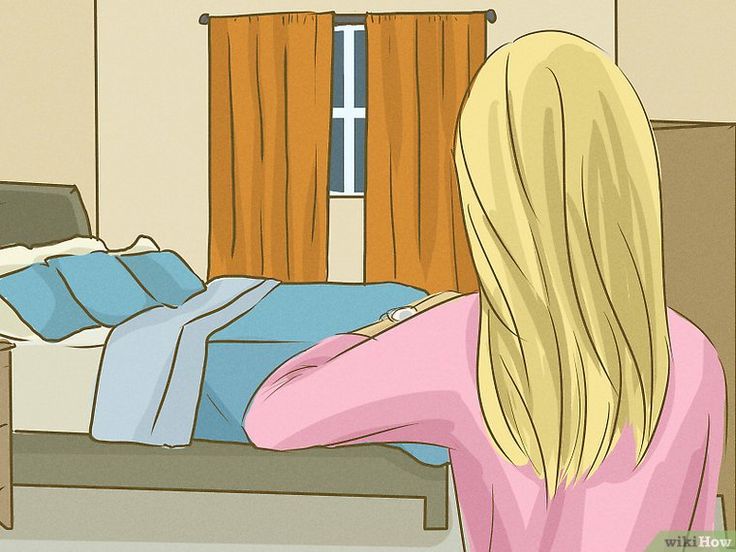 But, if you have to drink and/or smoke, do so a few hours before bedtime so it’s less likely to disrupt your sleep.
But, if you have to drink and/or smoke, do so a few hours before bedtime so it’s less likely to disrupt your sleep.
For an immediate pick-me-up, turn to water. Research shows being even mildly dehydrated can zap you of energy, ruin your mood, and impact cognitive functioning. Plus, even just the act of getting up and walking to get water will give you an energy boost.
We’ve covered more ways to wake yourself up here. You can also use RISE to plan an energy boost. Choose from things like get light, take a nap, and exercise, and RISE will show you the best time in your schedule to do them.
Now you know how sleep debt and circadian misalignment can tank your energy levels, it’s time to make the necessary changes to your bedroom, sleep schedule, and wind-down routine to stop that happening. If you’re wondering how to stay awake during the day, our alertness-boosting tips can help you maximize your energy levels.
Once you’ve realized you can overcome the obstacles to feeling more awake, more energy is just within your reach. The RISE app can help by calculating your sleep debt and keeping track of it as you pay it back, and predicting your circadian rhythm each day helping you stay in sync. Plus, it can remind you when to do 20+ sleep-boosting habits to help you meet your sleep need each night, for optimal energy each day.
Ideally before midnight. This is the first step towards sleeping for
8 hours
, finally getting enough sleep and feeling refreshed. If you have to get up early every day, develop a routine that will help you get up in the morning stress-free. For example, go to bed at 11 pm if you need to get up at 7 am.
To make it easier for you to fall asleep early, arrange dinner at 6-7 pm. Tune in to sleep: before going to bed, do a light stretch and do not take a laptop to bed so that there is no temptation to watch your favorite series.
Tune in to sleep: before going to bed, do a light stretch and do not take a laptop to bed so that there is no temptation to watch your favorite series.
While it is impossible to go on long trips due to restrictions, use the opportunity to relax outside the city. After a busy week, go to an eco-hotel, which is located far from the metropolis, or with a tent by the river or lake. A couple of days in nature invigorate and put your thoughts in order no worse than a week-long vacation.
Water not only quenches thirst, but also participates in all metabolic processes in the body. In the heat, it is especially important to prevent dehydration, which can occur due to active sweating. Drinking exactly 8 glasses a day is optional - drink as much as you want. By
US Institute of Medicine experts estimate
that men should drink about 3. 7 liters of fluid per day and women about 2.7 liters. But any liquid is considered, including from vegetables, fruits, ready meals.
7 liters of fluid per day and women about 2.7 liters. But any liquid is considered, including from vegetables, fruits, ready meals.
If you don't feel like drinking plain water, try adding pieces of fruit, berries, lemon wedges to it. Buy a beautiful refillable bottle that is a pleasure to carry with you every day.
A full workout can be invigorating, but it can also take away energy, especially in the early morning or late evening. Therefore, it is not necessary to train for two hours in the gym every day or run marathons. It is enough to do a 10-minute exercise after getting up, ride a bike to work, climb the escalators in the subway and take a walk or jog at lunchtime. With these simple steps, you can provide yourself with sufficient physical activity in a week - at least 150 minutes.
Alcohol stimulates the production of melatonin, a hormone that is responsible for regulating circadian rhythms and falling asleep.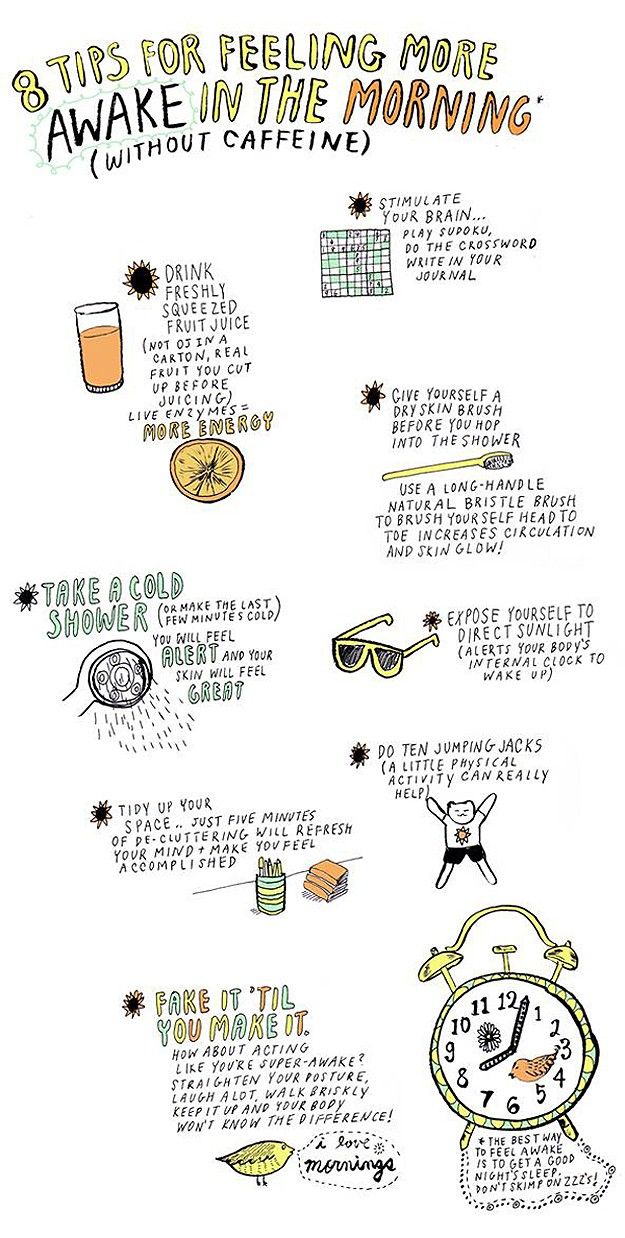 Therefore, after a glass of wine, it can make you sleepy. If you drink in the evening, it can be difficult to wake up in the morning.
Therefore, after a glass of wine, it can make you sleepy. If you drink in the evening, it can be difficult to wake up in the morning.
Overeating is a common cause of lethargy. Reduce the amount of food on your plate to feel energized after eating. Bonus: a couple of pounds that you could not get rid of in any way will most likely leave you.
Cook buckwheat, quinoa, chickpeas, rice or pasta for lunch and dinner, bake root vegetables. They keep you feeling full longer and make you less likely to crave a chocolate bar half an hour after dinner.
It's not easy to find time to cook during the working week. To avoid having to order pizza or buy fast food, prepare food for the next day in advance. For example, in a slow cooker, rice and buckwheat are cooked in just 15 minutes without your participation. In parallel, bake some vegetables and meat.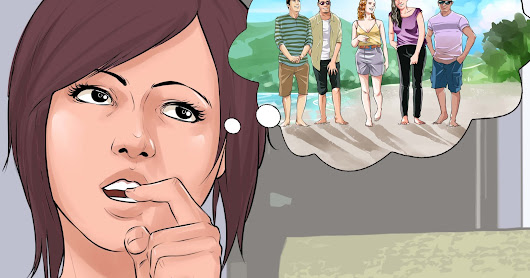 It remains only to collect a healthy and tasty dish.
It remains only to collect a healthy and tasty dish.
The body may react differently to coffee. There is a risk that an espresso or a cup of cappuccino in the late afternoon will not only not cheer you up, but also worsen the quality of sleep. So the next day you will feel overwhelmed. Experiment with the ideal time for a coffee break.
Anxiety and constant stress are exhausting. A high level of stress mobilizes all the forces of the body, but then hypervigilance is replaced by a breakdown. Therefore, in tense situations, try to deliberately relax: breathe deeply, lower your shoulders, do a little self-massage. These simple actions will save you from feeling empty.
A short daytime nap can add energy, especially if you didn’t get enough sleep at night. Close curtains to keep daylight out of the room, and remove outdoor clothing and tight clothing for complete comfort. Just in case, set a timer so you don't oversleep the rest of the day.
Just in case, set a timer so you don't oversleep the rest of the day.
Fresh and cool air will restore concentration. In the summer of the house, it is best not to close the window at all, so that the air circulates and the room is constantly ventilated. Check if the room is cool enough. Specialists of the British Ministry of Health advise sleeping at a temperature of 18 to 24 degrees.
The endless scrolling of social networks and news is tiring, which can make you feel overwhelmed. If possible, take a break for at least half an hour in the middle of the day and spend this time without gadgets. Read a paper book, take a walk, chat with colleagues or loved ones.
Smoking provokes numerous diseases - from bronchitis and pneumonia to cancer, stroke and heart attacks. It is better to give up any type of smoking, including electronic cigarettes, vape and hookah - they are no less harmful than regular cigarettes, and only create the illusion of relaxation.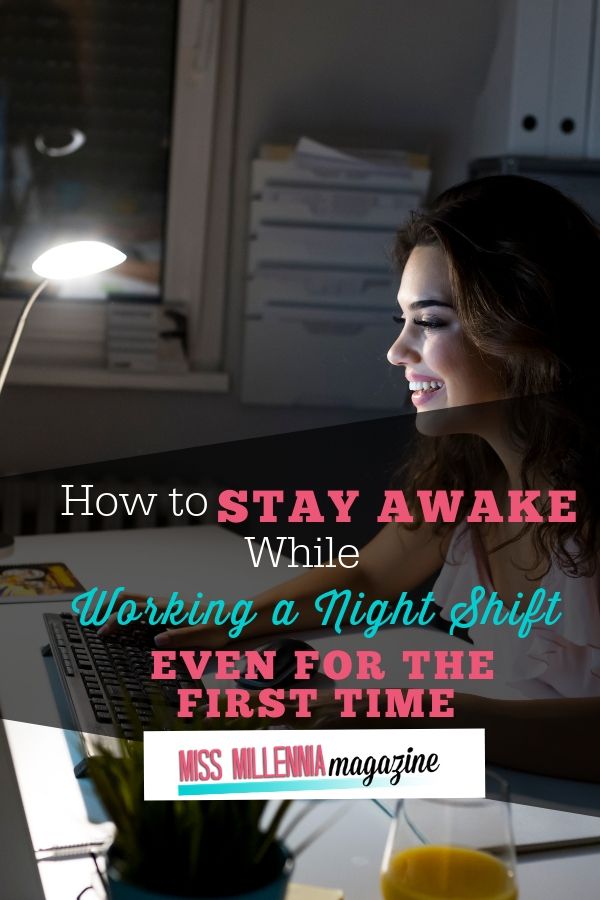 Quitting smoking is not easy, but with some effort it can be done.
Quitting smoking is not easy, but with some effort it can be done.
If you are depressed during the day and nothing helps, your favorite tracks will help out. Sing along and tap to the beat - American scientists have found that this is a great way to feel a surge of energy.
100,303
Antistress Practices how toKnow Yourself
Here are a few tips to help mitigate the damage from sleep deprivation. It is most important to get enough sleep the next night so that sleep deprivation remains the exception rather than becoming a regular occurrence.
Lack of sleep interferes with normal hunger. Without sleep, we often feel hungry all day, and if we start to abuse fast food and other unhealthy foods, it will be difficult to stop. Stay away from sweets and hamburgers and start your day with a healthy breakfast.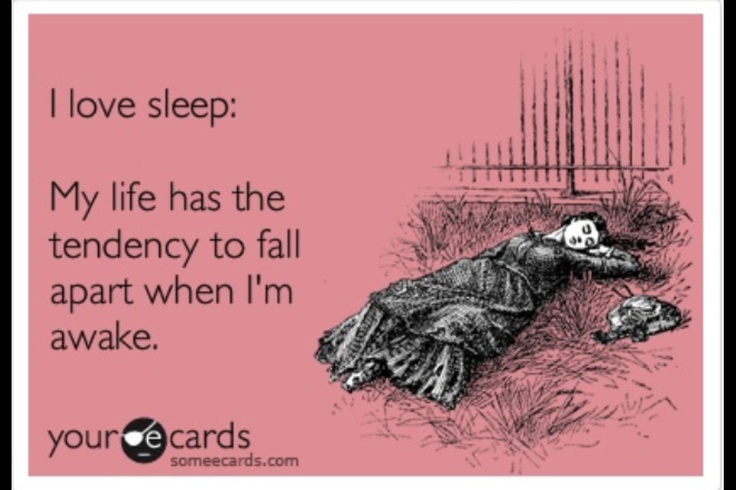 “Foods rich in protein will give you energy for the whole day,” advises nutritionist Megan Faletra.
“Foods rich in protein will give you energy for the whole day,” advises nutritionist Megan Faletra.
When you feel sleepy, do not sit in a dark room. “Bright light can wake you up and make you feel better,” explains Dr. Katie Goldstein of the Michigan Sleep Disorders Center. If the weather is sunny, take a walk outside and turn on as many lights as possible at home or in the office.
“Of course, when we don't get enough sleep, we want to think about exercise last. But even a few simple exercises will help you cheer up, ”says clinical psychologist Courtney Bancroft, a specialist in the treatment of insomnia and sleep disorders. However, do not overdo it: fitness trainers do not recommend resorting to training if you did not manage to get enough sleep. Limit charging.
“Breathing exercises are just as energizing as exercise,” adds Courtney Bancroth. Here are a couple of easy options:
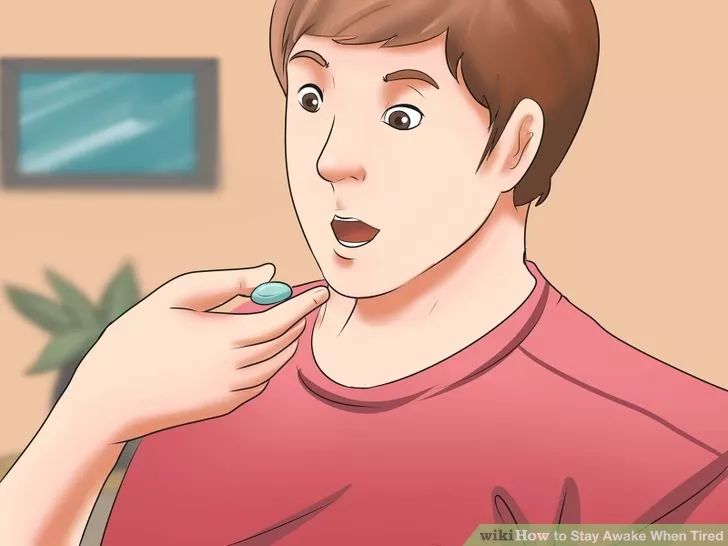 Take a deep breath. Repeat the exercise.
Take a deep breath. Repeat the exercise. Do not stay warm all the time, this will make you want to sleep even more. Bancroft recommends taking a cold shower, turning on the air conditioner, or running your hands under cold water from time to time.
"After a sleepless night, try not to sleep at all during the day, then it will be easier for you to fall asleep the next night," Bancroft advises. If the urge to take a nap becomes irresistible, you can lie down for a while - but no more than 45 minutes.
It is advisable to do this no later than two or three in the afternoon to give the body the opportunity to restore normal circadian rhythms (biological clock).